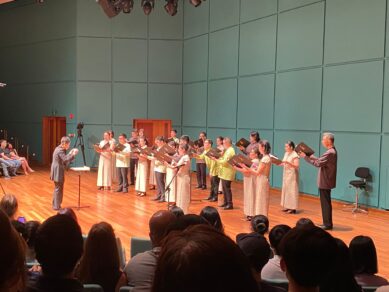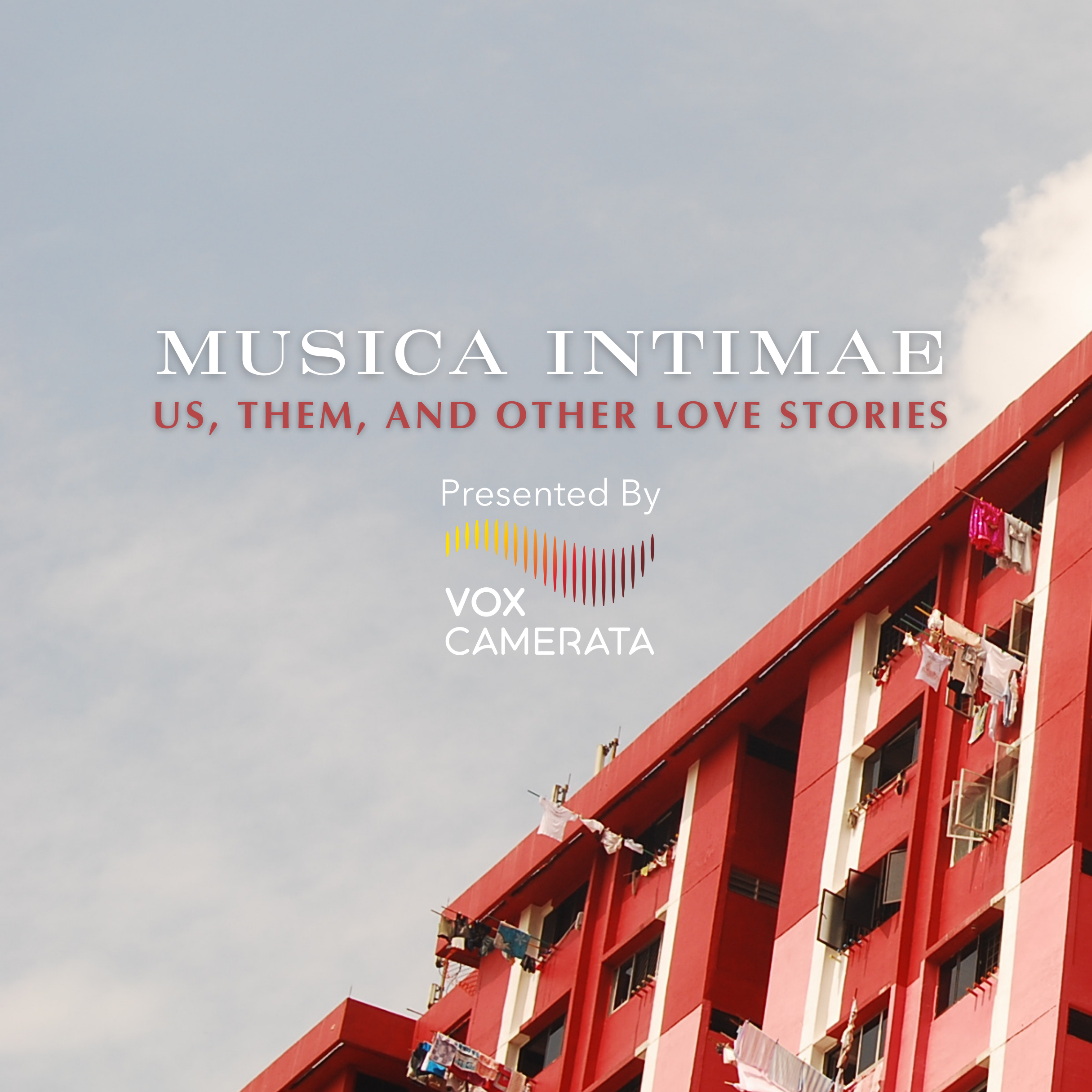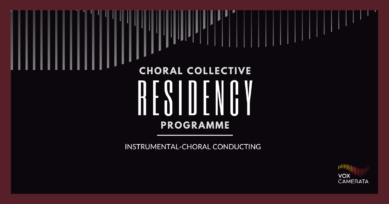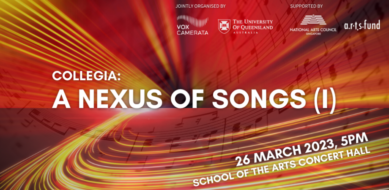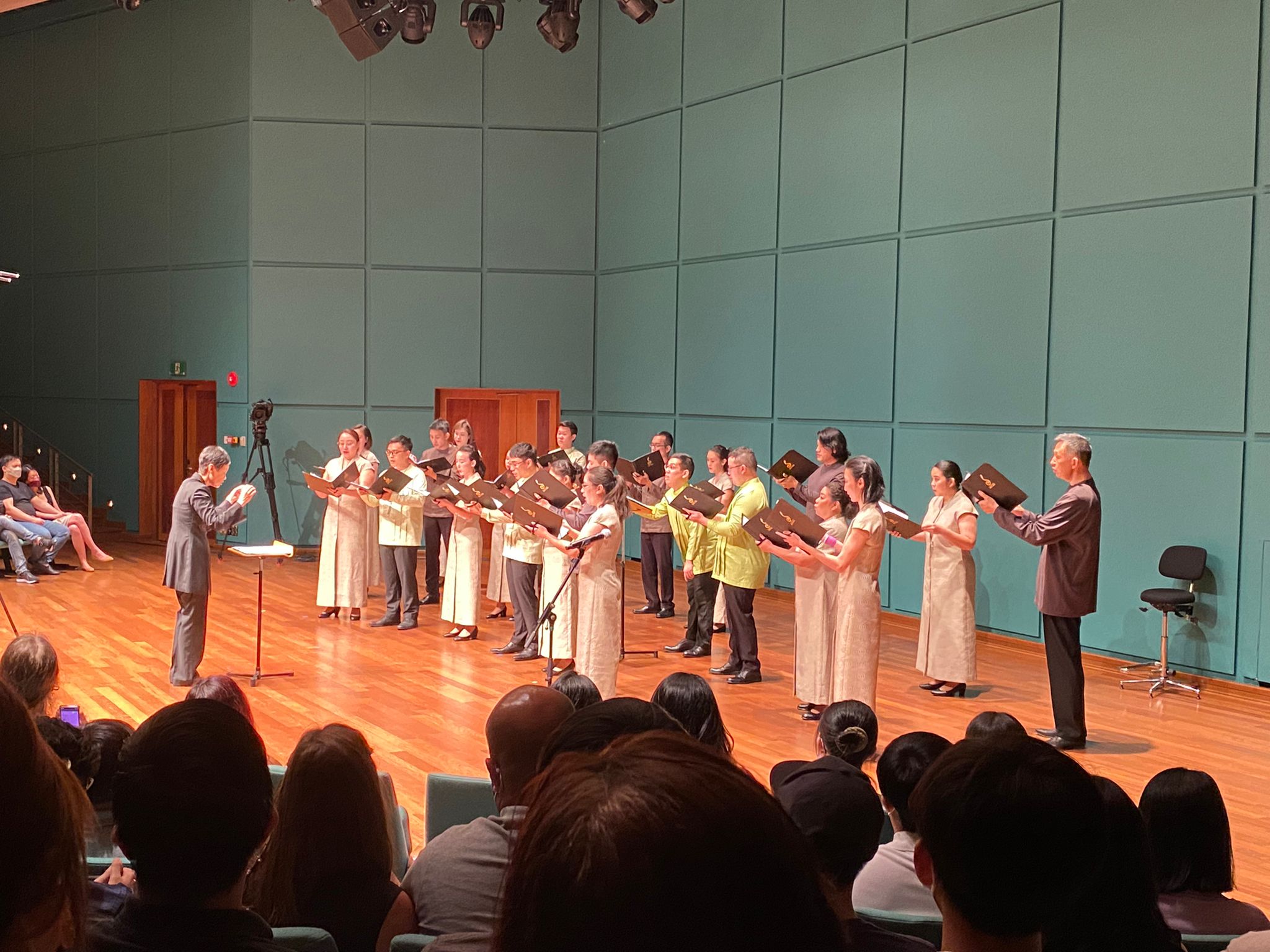
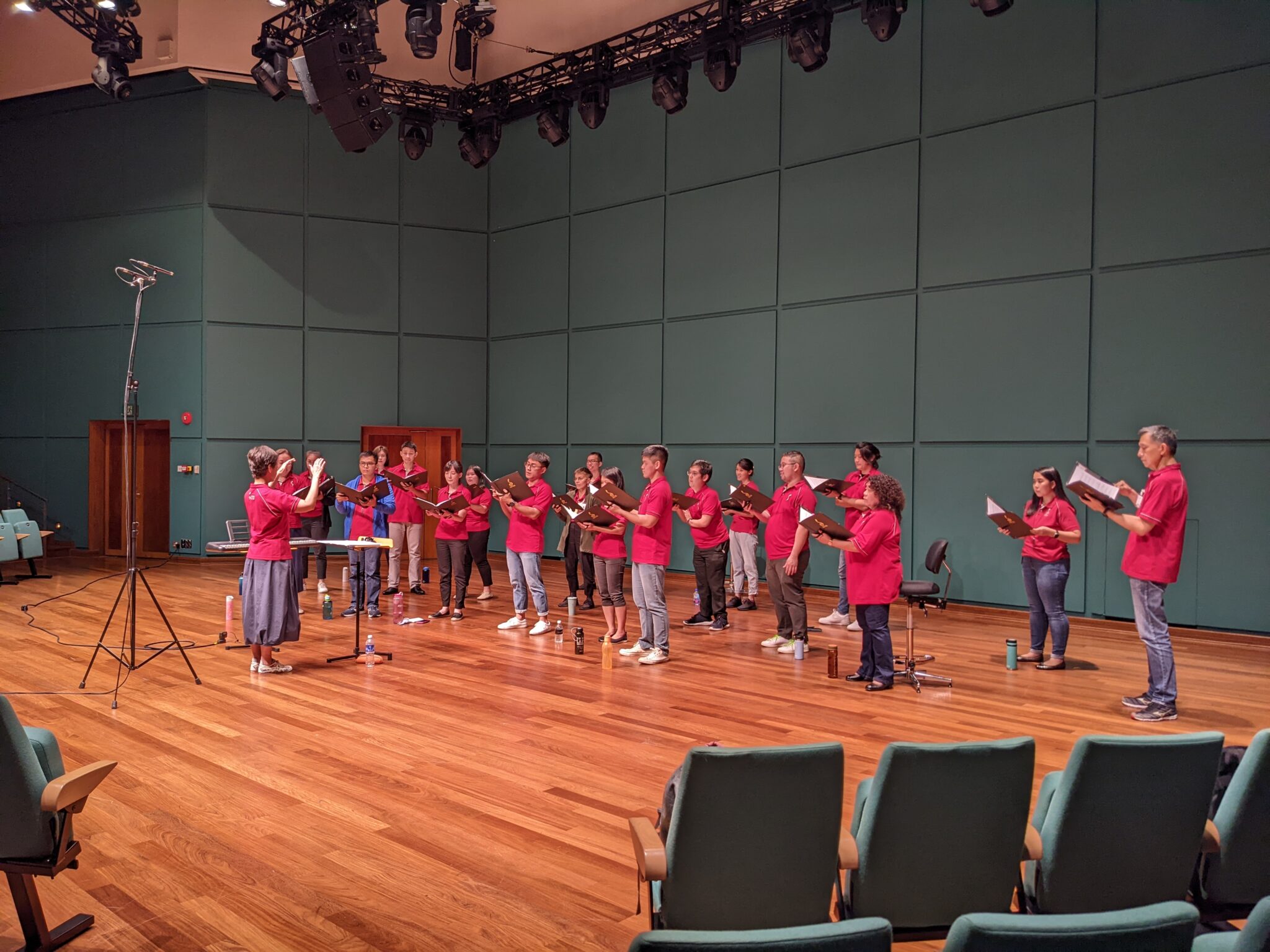
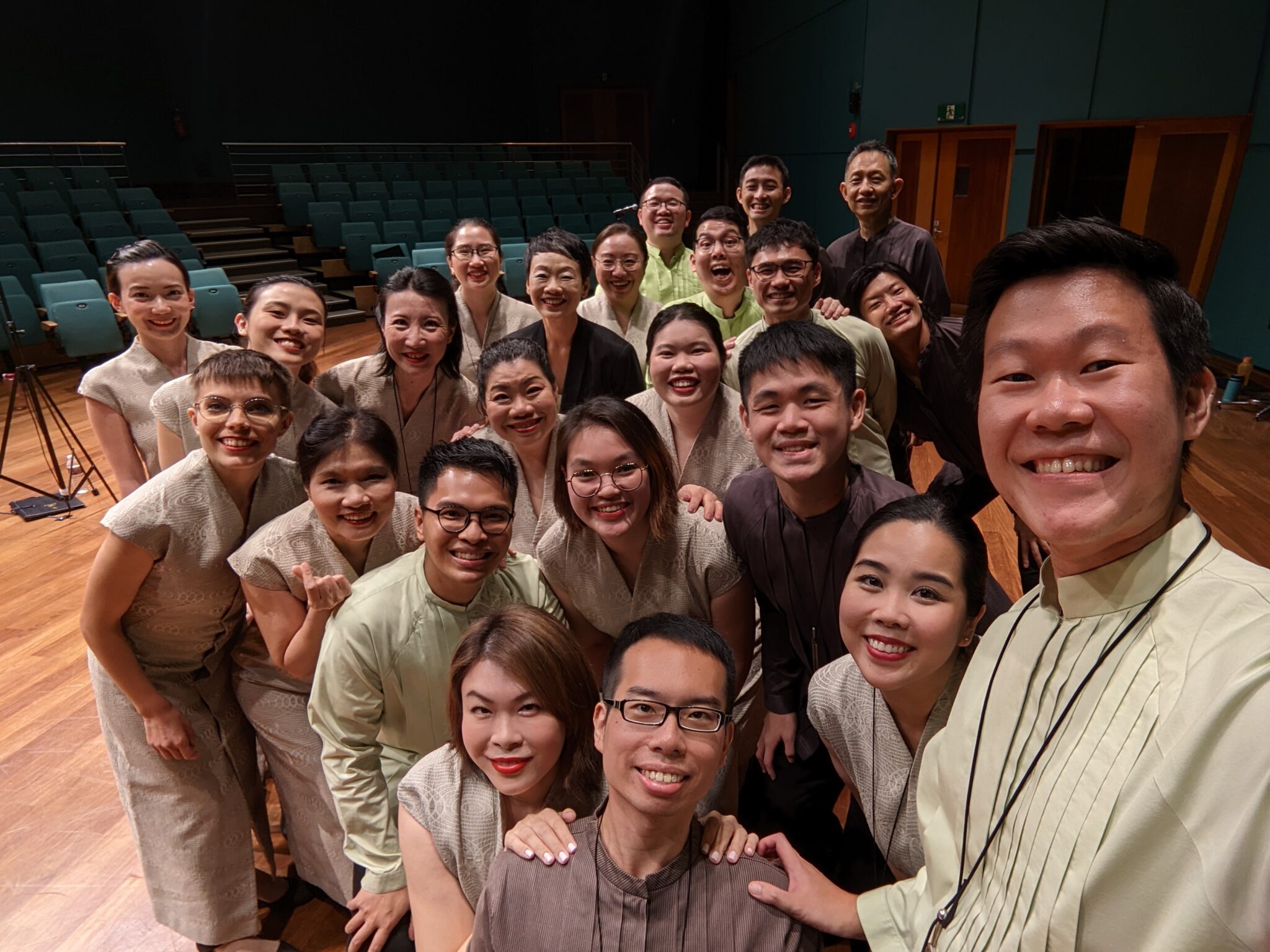
To have SYC to grace us with their performance once again is achingly poetic. A year has passed since I’ve had the pleasure of watching the SYC Ensemble Singers; a year where the pendulum of Safely Management Measures (SMM) swung back and forth and prevented choirs in Singapore to come together again. These measures had only eased again in April 2022, and we finally have the full complement of singers on stage. It was a glorious sight- singers standing shoulder to shoulder, their faces serene and full of concentration, and the graceful waves of tuning forks being resounded midst performance gave me a thrill and a joy that I’ve not felt in ages.
How has this concert bloomed? It began with SYC’s august artistic director, the serene and elegant Ms Jennifer Tham coming on stage and sharing a lyrical reflection on the themes of hope, coming together to make music, and coming home to the stage once again. The choir began the performance with James Macmillan’s A Child’s Prayer and Hildegard Von Bingen’s Hodie Aperuit. This pairing of songs entwines the span of years with the theme of the cycles of death and life. The former is a tribute to the tragedy of the Dunblane School Massacre in Scotland. Beginning with a heavy chord texture that paints the ache of grief, the song moved on to a duet of treble voices that depicts the flight of innocent souls moving heavenward. The song reaches a climax and then ends with the two soloists alone, and echo of the presence of the children who are now gone. The latter is an antiphon attributed to the famous mystic-nun known as the “Sybil of the rhine”. Despite the brevity of the text, the work uses long-drawn melisma to paint the three striking allegorical images of a gate, a flower, and the dawn light. These images in turn depict the wondrous miracle of childbirth and anchors its spiritual context to the birth of Jesus from the womb of his mother Mary.
In keeping with the themes of botanical biblical imagery, the ensemble performed Sven-David Sandström’s Four Songs of Love, whose lyrics are taken from Solomon’s Song of Songs. The Swedish composer’s perchance for multiple divisi and the use of expansive span both tessitura and dynamics in each vocal line challenges the choirs performing his works, and SYC rose (pun intended!) to the challenge. Following which, the next two works are excerpts from Arnold Rosner’s Nine Tagore Madrigals. The text is taken from poetry written by Bengali Poet Rabindranath Tagore, and both works have beautifully encapsulated the poet’s illuminative description of love, life and a garden’s lushness through the composer’s modern application of late renaissance modality, textures and aesthetic syntax.
Americ Goh’s rendition of William Shakespeare’s Sonnet 54 was performed next- where the audience was able to feel and hear the tension and anguish borne of love’s challenges woven with the chromatic and dissonating movements of the two leading soprano lines. Erik Bank’s Artefacts followed. This work is a labour of love- written for SYC Ensemble Singer’s 50th anniversary and the text was furbished by one of their own singers. The work weaves a telling of a loved one’s presence in fragments of sounds, text and breath, forming various emotional imprints that reflect of how time shapes the way loved ones come and occupy our mind’s eyes and the core of our being.
The programme’s last three pieces presents the theme of transfiguration and rebirth. Nicholas Ryan Kelly’s Loam is an evocation of the germination of a seed as an allegory of transformation. The piece’s hushed and ambiguous beginning situates the seed buried in darkness. The pieces moves on as the seed grows, where the leaves and stem reaches to the sun in a radiant climax. The next work, Ivo Antognini’s “Life has…” takes its text from Sara Teasdale’s poem Barter. He uses long flowing phrases and a juxtaposition free tonality and close harmonies to tell the parable of how life’s choices are meant to be seized without making space for regrets. The last piece is Zechariah Goh’s The Happiness of Fish, where the raison d’etre of the work is to portray a dialectic conversation between Zhuangzi and Huizi on the joy of being. The concert ended with the ensemble singing Saunder Choi’s arrangement of the Beatle’s Here comes the Sun as a much welcomed encore.
This excellent concert represents a new reality for the choral music scene in Singapore, where we live in state of cautious optimism for a post-COVID future. For two years, choristers have been segregated and silenced due to the pandemic. In presenting the programme in its entirety with singers finally able to stand shoulder to shoulder, the ensemble went to show that the beauty of the aural desert can only be found after the seasons turn- for when the rain finally comes, the flowering can then finally begin.
Bloom, a concert by the SYC Ensemble Singers took place on Saturday, 30th April 2022 at the Esplanade Recital Studio, Singapore.
